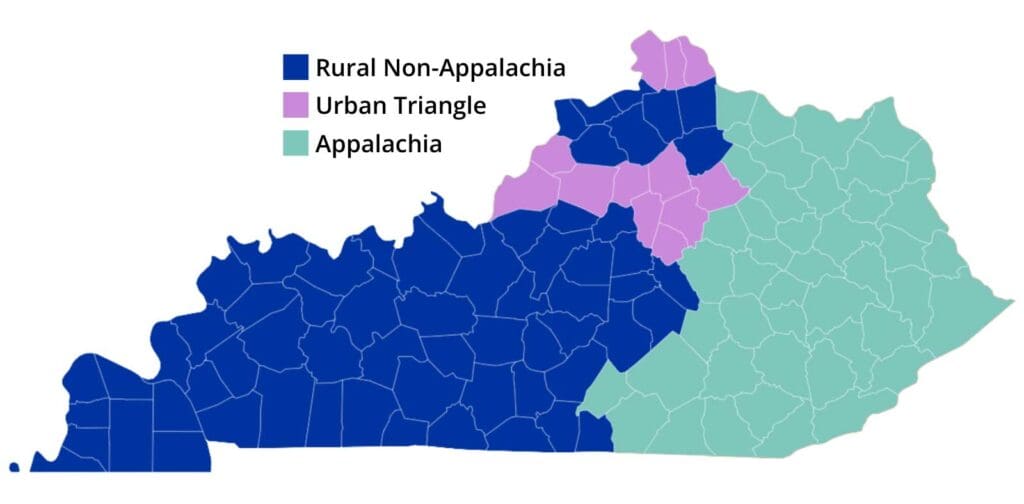Kentucky’s uninsured rate rose to 6.9% in 2024, up from 5.6% in 2023. Despite most Kentuckians having some form of health care coverage, the Commonwealth continues to rank near the bottom in overall health outcomes.
To better understand why coverage is not translating into better health, The Asclepius Initiative talked directly with people across the state about their health care experiences. To understand why, The Asclepius Initiative talked directly with people across the state about their health care experiences.
Between late 2024 and mid-2025, we interviewed 73 Kentuckians from rural, urban, and Appalachian communities. Participants had different types of insurance, including employer-based plans, Medicaid, Medicare, and Marketplace coverage. These conversations revealed that having health care coverage doesn’t always mean getting care when you need it.

What We Heard
People described many barriers that make it hard to get or use health care:
- Too few doctors and long wait times: In some areas, residents must travel hours for basic or specialty care.
- High costs: Even with insurance, copays, deductibles, and surprise bills make many avoid or delay care.
- Transportation problems: Rural residents often depend on unreliable medical transport services.
- Mistrust and cultural norms: Many said they grew up hearing “you only go to the doctor if it’s an emergency.”
- Administrative hurdles: Complex insurance paperwork and denials leave patients feeling frustrated and powerless.
As one participant shared, “If it’s not an emergency or you’re not going to die, you don’t go.” Another said, “You can’t trust doctors… that’s in our culture.”
Why It Matters
These barriers create a cycle where people wait until they’re very sick to seek care, leading to worse outcomes, higher costs, and greater stress. Many participants described feeling dismissed or unheard by the system, and some experienced bias based on race, income, or insurance type.
This study shows that coverage alone isn’t enough. To improve health outcomes, Kentucky needs stronger access to care, less red tape, and systems that treat every patient with dignity and respect.
This study was conducted with funding from The Commonwealth Fund
